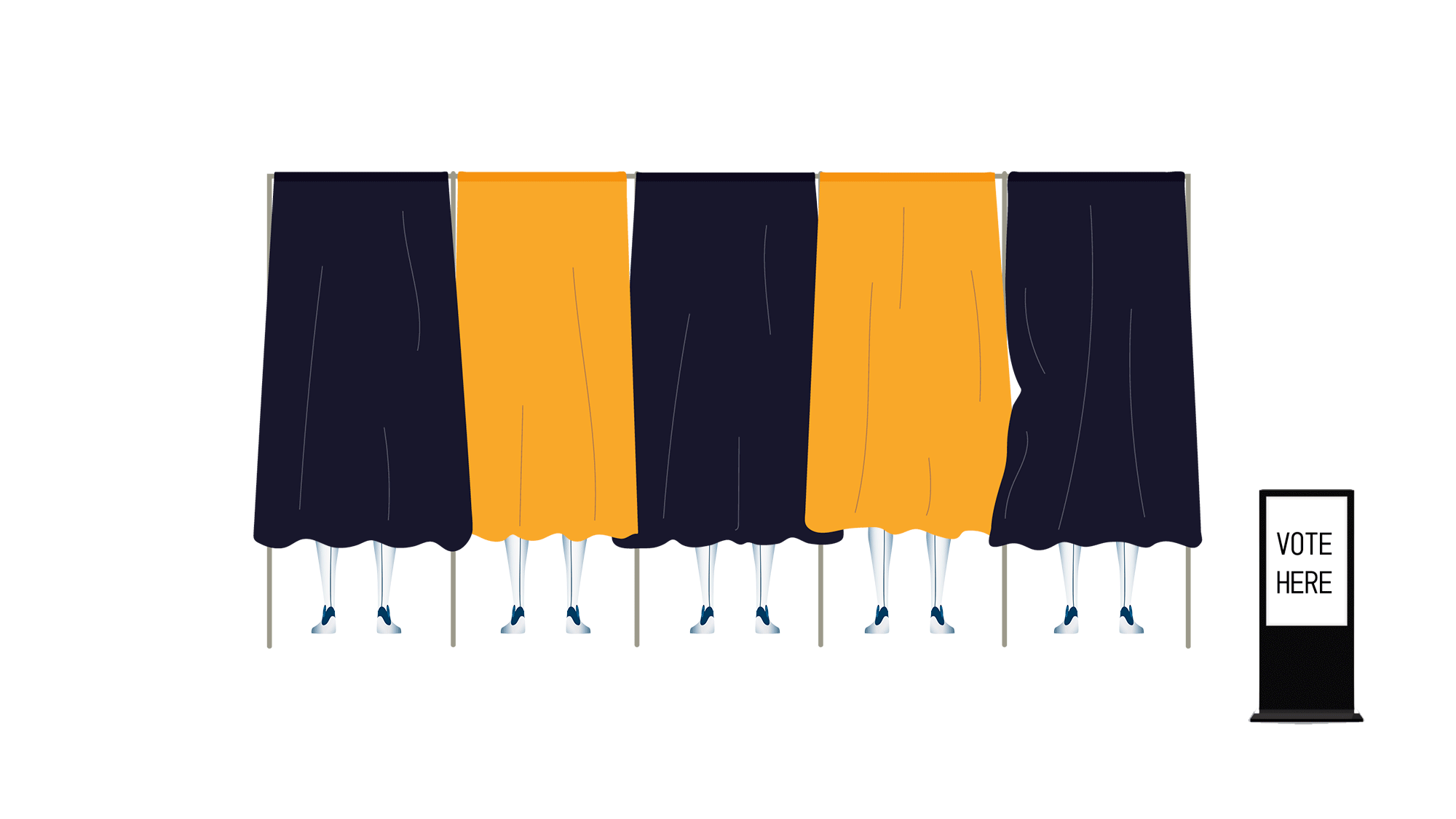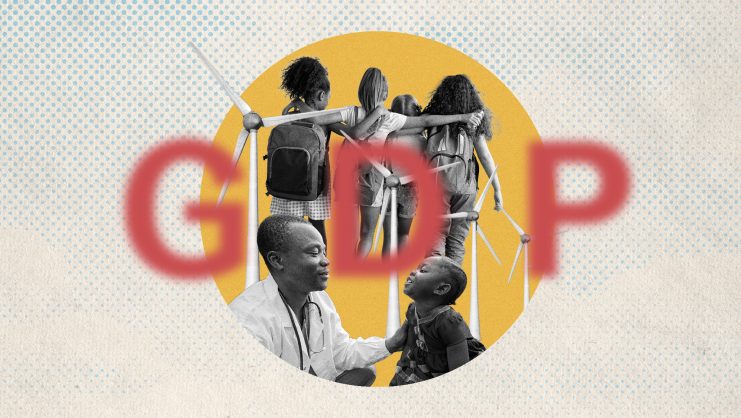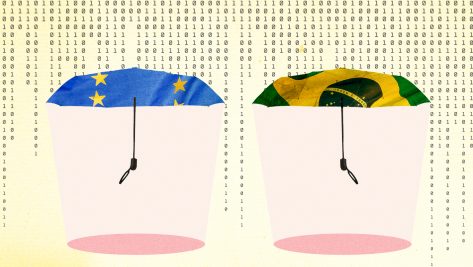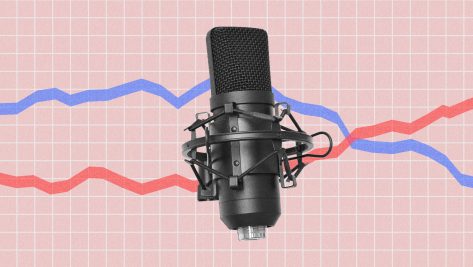Thanks to recent technological advances, enthusiasm for integrating AI into political decision-making is running high around the world. A survey from IE University’s Center for the Governance of Change found strong acceptance of proposals for automating political decision-making, with 51% of Europeans, 40% of Americans, and 75% of Chinese in support of replacing at least some human politicians with AI. The numbers highlight dissatisfaction with conventional institutions and excitement about the improvements that new technologies might offer.
However, in forthcoming research, I show how prominent proposals for augmenting democracy with AI reflect controversial assumptions about what makes democracy valuable and how it can function best. The theories and methods of political philosophy can help us assess these assumptions and put proposals for enhancing democracy on stronger footing. But political philosophers have left important questions unanswered. My research suggests that political philosophy needs an upgrade to better inform efforts to automate politics.
Some have proposed allowing chatbots to compete with human candidates for elected positions. Chatbots are hard to bribe; they don’t sleep; they have encyclopedic knowledge of facts and engage reliably in elementary reasoning. Trials have occurred in New Zealand, Russia, Denmark, and Japan. Chatbots have proven themselves capable of answering constituents’ questions patiently and accurately and writing evidence-based legislation in an instant. But familiar problems in AI ethics, including concerns about bias, explainability, and accountability, become especially vexing when AI is used to make decisions with coercive force or pervasive impact.
The data on which chatbots are trained and how they are programmed to align with human values may advantage certain interests and perspectives to the exclusion of others. Their training data, programming choices, and reasoning processes may be opaque or indecipherable. Chatbots may be unable to take responsibility or be held accountable for life-altering decisions and mistakes. In addition to these common ethical concerns, chatbots might be incapable of performing many tasks that politicians normally undertake, such as managing auxiliary staff, negotiating with adversaries, building coalitions, and performing ceremonial functions. Those who support replacing politicians with chatbots need to show how these limitations can be undercut or overridden.
Another proposal seeks to further revolutionize the concept of representation. Instead of electing politicians to represent groups of people, the physicist César Hidalgo suggests granting every citizen an individualized bot to serve as their personal representative. Trained on data we provide them, these avatars would then negotiate with other citizens’ bots to craft legislation. Hidalgo’s proposal reduces many problems of representative democracy, such as corruption, inefficiency, and exclusion. Individualized bots would serve their constituents, not special interests; they would allow every citizen the chance to introduce a detailed set of preferences into the legislative process; and they could make decisions rapidly and responsively. But individualized bots also come with serious costs, such as reducing political accountability and the role of deliberation, while also widening the digital divide.
“Should we seek to replace democracy with rule by AI? If not, what is it about democracy that makes it a form of governance that we should seek to preserve?
Others have proposed replacing direct citizen input with the data emitted from our use of digital applications, such as social media, web browsing, location-based apps, and payment processors. According to proponents, this incidental data provides much richer, more up-to-date, and more accurate information about citizens’ preferences and beliefs than voting. These proposals indicate that governments should therefore rely less on votes and instead expand the collection and processing citizens’ digital data. Obviously, such proposals come with privacy concerns that would be difficult to overcome. But they also face a more fundamental problem. While these proposals may do better than conventional voting in aligning legislation with citizens’ consumption preferences, the point of political participation is not, or not only, to have our economic desires reflected in policy. For many political philosophers, the point of political participation is to render one’s considered judgments about justice and the common good, reached in part through deliberation with one’s fellow citizens. From this perspective, proposals that bypass human reasoning and deliberation misunderstand the point of democratic participation.
Societies cannot make informed decisions about how to integrate AI into politics without defensible solutions to these trade-offs. Here, democratic theory can help, as many of these trade-offs are familiar from long-standing debates about the ideals of democracy. Democratic theorists have proposed competing solutions, including the elite theory of democracy, which seeks to limit the role of citizens in politics to periodically checking the conduct of skilled representatives; the aggregative conception of democracy, which seeks to maximize the satisfaction of citizens’ preferences; and the deliberative conception of democracy, which seeks to reach robust decisions through the public exchange of reasons. Each conception is controversial and faces well-known objections. But studying the merits and drawbacks of these conceptions can help put proposals for democratic innovation on more secure foundations.
AI also offers a more foundational challenge to democracy, as it might someday enable us to eliminate citizen participation altogether. Imagine a superintelligent AI system that has been trained on all recorded human knowledge. Its abilities to promote justice and the common good far exceed those of any imaginable democracy. I call this thought experiment the Algocrat, and it forces us to reflect on why—and to what extent—democracy is worth preserving. Common arguments on behalf of democracy focus on its ability to produce superior outcomes or its ability to resolve disagreements about who is most competent to rule. The Algocrat experiment shows that artificial intelligence may someday do better than democracy on these grounds. Should we seek to replace democracy with rule by AI? If not, what is it about democracy that makes it a form of governance that we should seek to preserve?
Although democratic theory already has much to contribute to current debates about integrating AI into democracy, received wisdom has less to teach us about democracy’s long-term value. Philosophers have debated the merits of democracy for millennia, but until recently, the idea that humans might be a dispensable feature of politics was largely unimaginable. To help societies navigate new challenges and opportunities posed by artificial intelligence, political philosophy stands in need of an upgrade.
© IE Insights.











